|
During a recent interview at his official residence, His Excellency Emilio de Miguel Calabia joked that he’s come to know the Spanish Embassy on Ratchadaphisek Road overlooking Benjakitti Park very well. That’s because he has served Spain in Thailand for a total of nine years in three different postings, and since September 2017 has been head of its mission here.
It’s also fair to say he has come to know Thailand very well, and his affection for the country is obvious. Much of the interview was focused on the ongoing Covid-19 pandemic and the restrictions it has placed on the job of diplomacy. Mr Calabia said the crisis had affected his plans for 2020, but with the situation slowly getting back to normal he is looking forward to resuming a full schedule. Background
“I was born in Madrid in 1965 and entered the Spanish Ministry of Foreign Affairs (MFA) in 1990,” said the ambassador. “My father was a lawyer and my mother a housewife. I have two sisters. I am the first diplomat in the family. In the beginning of my career I went to different parts of the world like Cameroon in Africa, then Yugoslavia and Bolivia in South America. Then I discovered Southeast Asia. This is my third assignment in Thailand, following two different postings in the Philippines and in Singapore. In between foreign postings I also became a specialist in Southeast Asian affairs. I held the position of the Deputy Director for Southeast Asia and Pacific for four years.
|
"I joined the MFA because I have always been very interested in travelling and knowing other cultures. As a diplomat you manage to know other countries in a way no normal tourist can. You are not just traveling; you are getting involved in the cultures of the countries where you live.
“During previous assignments at the Spanish embassy in Bangkok I’ve done consular, political and cultural work. I came to Thailand for the first time in 1996 and left in 1999. The second assignment here was from 2005 to 2008. I took my ambassador post in September 2017. This is my first ambassadorial assignment. I am concurrently also ambassador to Cambodia, Laos and Myanmar. I haven’t been able to travel to these countries, or anywhere else, in recent months because of Covid-19 restrictions, but normally I am traveling a lot.
“The current period of staying in place has its advantages. I am not unhappy staying put. My life had become too stressful so it’s good to have the opportunity to stop for a while,” the ambassador admitted.
He said that in April and May the main task of the embassy was to repatriate non-resident Spanish nationals back home. Now the pressure to get tourists home safe and sound has decreased enormously and the embassy can focus less on consular duties. “I’ve restarted diplomatic meetings. The economic and commercial aspects of the job are also regaining importance, which I like.
“I am quite optimistic about the future. I think the world will rebound and here in Thailand they have managed Covid-19 very well. In this respect, I feel very safe. I am convinced that Thailand will be completely reopened by the end of the year. I am one of those who believe that maybe Covid-19 will just fade out, like what happened with SARS. You hear so many different things about how Covid-19 affects people. Some people with preconditions have died, and people who were healthy have died, but many others have been exposed and didn’t even realize it. There have been reports that blood type has an influence on how severely someone will be affected by the virus. Personally, I have the impression the virus is getting weaker.”
“During previous assignments at the Spanish embassy in Bangkok I’ve done consular, political and cultural work. I came to Thailand for the first time in 1996 and left in 1999. The second assignment here was from 2005 to 2008. I took my ambassador post in September 2017. This is my first ambassadorial assignment. I am concurrently also ambassador to Cambodia, Laos and Myanmar. I haven’t been able to travel to these countries, or anywhere else, in recent months because of Covid-19 restrictions, but normally I am traveling a lot.
“The current period of staying in place has its advantages. I am not unhappy staying put. My life had become too stressful so it’s good to have the opportunity to stop for a while,” the ambassador admitted.
He said that in April and May the main task of the embassy was to repatriate non-resident Spanish nationals back home. Now the pressure to get tourists home safe and sound has decreased enormously and the embassy can focus less on consular duties. “I’ve restarted diplomatic meetings. The economic and commercial aspects of the job are also regaining importance, which I like.
“I am quite optimistic about the future. I think the world will rebound and here in Thailand they have managed Covid-19 very well. In this respect, I feel very safe. I am convinced that Thailand will be completely reopened by the end of the year. I am one of those who believe that maybe Covid-19 will just fade out, like what happened with SARS. You hear so many different things about how Covid-19 affects people. Some people with preconditions have died, and people who were healthy have died, but many others have been exposed and didn’t even realize it. There have been reports that blood type has an influence on how severely someone will be affected by the virus. Personally, I have the impression the virus is getting weaker.”
Bilateral relations
“As life returns little by little to normal I am increasingly focused on promoting bilateral relations between Spain and Thailand. I am scheduled for meetings at Thailand’s Ministry of Foreign Affairs and I’ve already begun meetings with Spanish businessmen,” said Mr de Miguel Calabia.
Meetings have been conducted through video conferencing and for a while people-to-people contacts will be kept small. Cultural events are also in the works, but until the end of the year these should be approached through a virtual format, said the ambassador.
“Spain opened its embassy in Bangkok in 1961. We employ 25 people, both Spanish officials and local staff. Spain and Thailand established diplomatic relations exactly 150 years ago. We had a program scheduled to celebrate the anniversary, but we will have to move it to a digital format. We originally planned to bring speakers to Thailand from Spain and conduct some activities jointly with the Siam Society, but whether we like it or not digital contacts will take precedence for the foreseeable future.
“Understandably, the relations between our two countries are now at a low pitch because of Covid. But we retain the same high level of mutual sympathy and regard. There are no major troubles between our countries, but as always we are looking for ways to increase bilateral ties. I’ve noticed that many people in Thailand do not have a proper knowledge of Spain. We would like to convey to our Thai friends that Spain is a very modern country with a high level of technology. We have a very rich and diverse culture. This is the image we wish to convey to Thailand.
“We share some national characteristics which tend to bolster our relations. For example, both cultures are very family-oriented and our peoples are very sociable. However, there’s a lot of ground for improvement, and that makes me sorry that all my plans for this year have had to be put somewhat on standby.”
Mr de Miguel Calabia said that trade between Thailand and Spain has held up fairly well, but noted that international trade has fallen pretty much everywhere over the last three months.
“In 2019 Spain exported to Thailand products valued at almost US$1 billion, and imported from Thailand products worth about $1.2 billion. We have a deficit with most countries in ASEAN. We import mainly seafood, vehicles and auto parts, machinery, tools and rubber. We export mainly machinery and tools, chemicals and cars.
“There are about 40 Spanish companies operating in Thailand. The Spanish-Thai Chamber of Commerce was established just this year. Some major Spanish companies in Thailand are Amadeus, in the tourism sector; Indra, a global technology company; and Roca, a toiletries manufacturer.
“Our societies are getting closer and closer. About 1,200 Spanish nationals now reside in Thailand; twenty years ago it was less than 200. Twenty years ago we would have one marriage of a Spanish-Thai couple every three or four months. Now there may be several in a single month. Last year 200,000 Spanish tourists visited Thailand. I can’t tell you how many Thai citizens visited Spain because of the Schengen visas.”
Meetings have been conducted through video conferencing and for a while people-to-people contacts will be kept small. Cultural events are also in the works, but until the end of the year these should be approached through a virtual format, said the ambassador.
“Spain opened its embassy in Bangkok in 1961. We employ 25 people, both Spanish officials and local staff. Spain and Thailand established diplomatic relations exactly 150 years ago. We had a program scheduled to celebrate the anniversary, but we will have to move it to a digital format. We originally planned to bring speakers to Thailand from Spain and conduct some activities jointly with the Siam Society, but whether we like it or not digital contacts will take precedence for the foreseeable future.
“Understandably, the relations between our two countries are now at a low pitch because of Covid. But we retain the same high level of mutual sympathy and regard. There are no major troubles between our countries, but as always we are looking for ways to increase bilateral ties. I’ve noticed that many people in Thailand do not have a proper knowledge of Spain. We would like to convey to our Thai friends that Spain is a very modern country with a high level of technology. We have a very rich and diverse culture. This is the image we wish to convey to Thailand.
“We share some national characteristics which tend to bolster our relations. For example, both cultures are very family-oriented and our peoples are very sociable. However, there’s a lot of ground for improvement, and that makes me sorry that all my plans for this year have had to be put somewhat on standby.”
Mr de Miguel Calabia said that trade between Thailand and Spain has held up fairly well, but noted that international trade has fallen pretty much everywhere over the last three months.
“In 2019 Spain exported to Thailand products valued at almost US$1 billion, and imported from Thailand products worth about $1.2 billion. We have a deficit with most countries in ASEAN. We import mainly seafood, vehicles and auto parts, machinery, tools and rubber. We export mainly machinery and tools, chemicals and cars.
“There are about 40 Spanish companies operating in Thailand. The Spanish-Thai Chamber of Commerce was established just this year. Some major Spanish companies in Thailand are Amadeus, in the tourism sector; Indra, a global technology company; and Roca, a toiletries manufacturer.
“Our societies are getting closer and closer. About 1,200 Spanish nationals now reside in Thailand; twenty years ago it was less than 200. Twenty years ago we would have one marriage of a Spanish-Thai couple every three or four months. Now there may be several in a single month. Last year 200,000 Spanish tourists visited Thailand. I can’t tell you how many Thai citizens visited Spain because of the Schengen visas.”
Personal
“I truly enjoy my career. As for hobbies, I especially like reading and writing, and also going to the gym. Before the Covid-19 I used to travel around Thailand on weekends, but since mid-March I’ve left Bangkok only twice for short periods.
“I sometimes eat at Spanish restaurants along Sukhumvit. I have a Spanish chef at my residence. He is excellent. Here in Thailand people like the Spanish dish paella, which is like khao pad. They also like to eat Spanish cold cuts like ham. The Spanish breakfast dish known as churros is well known to many Thais. You should try it with chocolate.
“Like most Thais, Spanish people love football and I’m no different. Many Spaniards are missing football. The Spanish League has many fans in Thailand; in fact it is second only to the English Premier League.”
Mr de Miguel Calabia feels very much at home in Thailand, and this is partly because he can speak and read Thai. “I can’t write in Thai because the orthography is very difficult. Besides Spanish I can speak English and French well, and long ago I studied Russian. I think if I studied again for one or two months I would recover it quite quickly.
“I would like to take this opportunity to thank the Thai authorities. Since my arrival in 2017 they have been very supportive. We have had very good relations with the MFA and other Thai agencies. There are at least two diplomats at the MFA who speak Spanish well.
One of these is the desk officer for Spain at the ministry.
This makes things easier for us. Whenever I need something from the MFA, she is always the one I call.
“Since I first came here many years ago I have always genuinely liked the Thai people. I find them very friendly, generous and compassionate, and they are respectful of others,” Mr de Miguel Calabia concluded the interview.
“I sometimes eat at Spanish restaurants along Sukhumvit. I have a Spanish chef at my residence. He is excellent. Here in Thailand people like the Spanish dish paella, which is like khao pad. They also like to eat Spanish cold cuts like ham. The Spanish breakfast dish known as churros is well known to many Thais. You should try it with chocolate.
“Like most Thais, Spanish people love football and I’m no different. Many Spaniards are missing football. The Spanish League has many fans in Thailand; in fact it is second only to the English Premier League.”
Mr de Miguel Calabia feels very much at home in Thailand, and this is partly because he can speak and read Thai. “I can’t write in Thai because the orthography is very difficult. Besides Spanish I can speak English and French well, and long ago I studied Russian. I think if I studied again for one or two months I would recover it quite quickly.
“I would like to take this opportunity to thank the Thai authorities. Since my arrival in 2017 they have been very supportive. We have had very good relations with the MFA and other Thai agencies. There are at least two diplomats at the MFA who speak Spanish well.
One of these is the desk officer for Spain at the ministry.
This makes things easier for us. Whenever I need something from the MFA, she is always the one I call.
“Since I first came here many years ago I have always genuinely liked the Thai people. I find them very friendly, generous and compassionate, and they are respectful of others,” Mr de Miguel Calabia concluded the interview.
Curriculum Vitae of H.E. Emilio de Miguel Calabia
Graduation
Bachelor in Law, Spain.
Professional experience
• 1990: Head of Multilateral Affairs/Third Secretary, General Direction of Europe.
• 1990 -1992: Deputy Head of Mission, Embassy of Spain in Yaoundé, Cameroon.
• 1993-1994: First Secretary in the Embassy of Spain in Belgrade, Yugoslavia.
• 1994 -1996: Deputy Chief of Mission, Embassy of Spain in La Paz, Bolivia.
• 1996 -1997: First Secretary, Embassy of Spain in Bangkok, Thailand.
• 1997 -1999: Deputy Chief of Mission, Embassy of Spain in Bangkok, Thailand.
• 1999 -2000: Head of Cultural Services, Ministry of Foreign Affairs in Madrid, Spain.
• 2000 2002: Advisor - Cabinet of Deputy Minister of Foreign Affairs, Ministry of Foreign Affairs in Madrid, Spain.
• 2002 -2005: Consul, Consulate General of Spain in Manila, the Philippines.
• 2005 -2008: First Secretary, Embassy of Spain in Bangkok, Thailand.
• 2008 -2011: Deputy Chief of Mission, Embassy of Spain in Singapore.
• 2011 -2013: Technical Counsellor - Direction General for North, North America, Asia and the Pacific. Ministry of Foreign Affairs in Madrid, Spain.
• 2013 -2017: Deputy Director-General for Southeast Asia, the Pacific and the Philippines.
• September 26, 2017: Ambassador Extraordinary and Plenipotentiary of Spain to the Kingdom of Thailand.
• February 9, 2018: Ambassador Extraordinary and
Plenipotentiary of Spain to the Lao People’s Democratic Republic.
• February 23, 2018: Ambassador Extraordinary and Plenipotentiary of Spain to the Republic of the Union of Myanmar.
• November 26, 2018: Ambassador Extraordinary and Plenipotentiary of Spain to the Kingdom of Cambodia.
Current
• Minister Plenipotentiary.
Decorations
• The Order of Isabel La Católica, Officer.
Bachelor in Law, Spain.
Professional experience
• 1990: Head of Multilateral Affairs/Third Secretary, General Direction of Europe.
• 1990 -1992: Deputy Head of Mission, Embassy of Spain in Yaoundé, Cameroon.
• 1993-1994: First Secretary in the Embassy of Spain in Belgrade, Yugoslavia.
• 1994 -1996: Deputy Chief of Mission, Embassy of Spain in La Paz, Bolivia.
• 1996 -1997: First Secretary, Embassy of Spain in Bangkok, Thailand.
• 1997 -1999: Deputy Chief of Mission, Embassy of Spain in Bangkok, Thailand.
• 1999 -2000: Head of Cultural Services, Ministry of Foreign Affairs in Madrid, Spain.
• 2000 2002: Advisor - Cabinet of Deputy Minister of Foreign Affairs, Ministry of Foreign Affairs in Madrid, Spain.
• 2002 -2005: Consul, Consulate General of Spain in Manila, the Philippines.
• 2005 -2008: First Secretary, Embassy of Spain in Bangkok, Thailand.
• 2008 -2011: Deputy Chief of Mission, Embassy of Spain in Singapore.
• 2011 -2013: Technical Counsellor - Direction General for North, North America, Asia and the Pacific. Ministry of Foreign Affairs in Madrid, Spain.
• 2013 -2017: Deputy Director-General for Southeast Asia, the Pacific and the Philippines.
• September 26, 2017: Ambassador Extraordinary and Plenipotentiary of Spain to the Kingdom of Thailand.
• February 9, 2018: Ambassador Extraordinary and
Plenipotentiary of Spain to the Lao People’s Democratic Republic.
• February 23, 2018: Ambassador Extraordinary and Plenipotentiary of Spain to the Republic of the Union of Myanmar.
• November 26, 2018: Ambassador Extraordinary and Plenipotentiary of Spain to the Kingdom of Cambodia.
Current
• Minister Plenipotentiary.
Decorations
• The Order of Isabel La Católica, Officer.

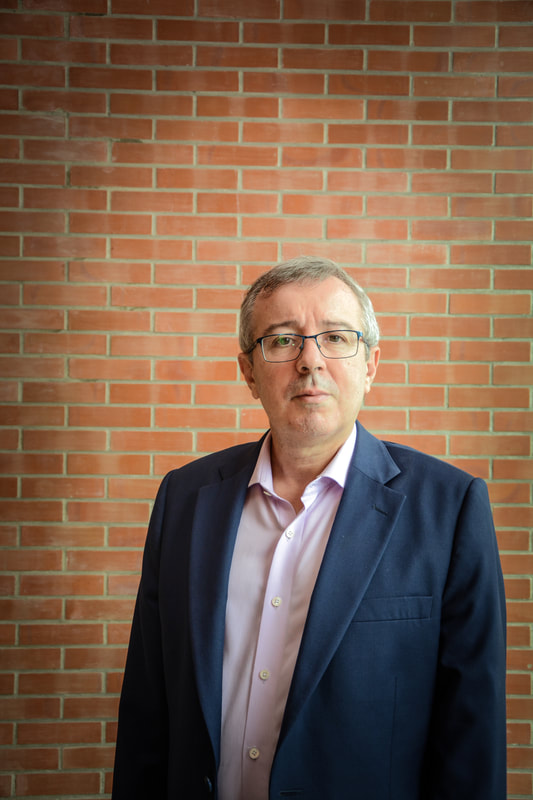

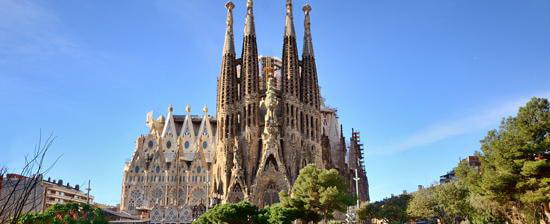
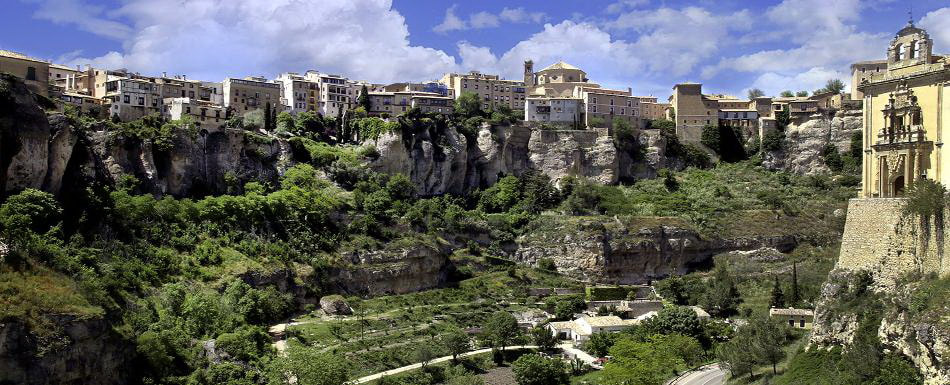
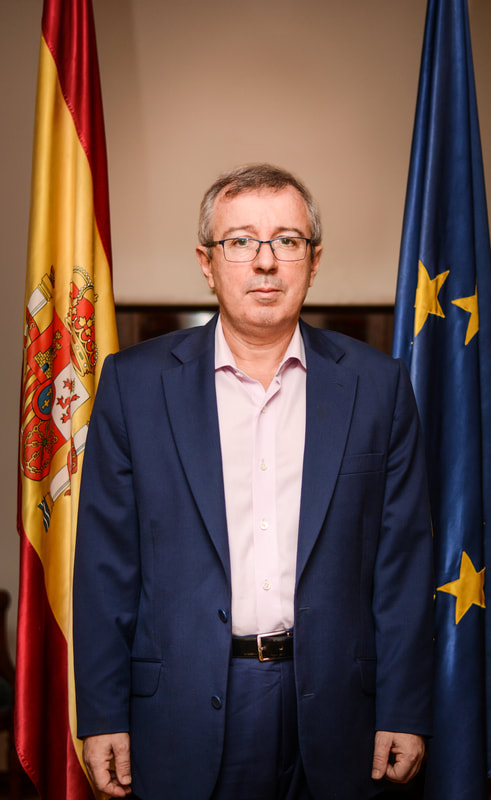
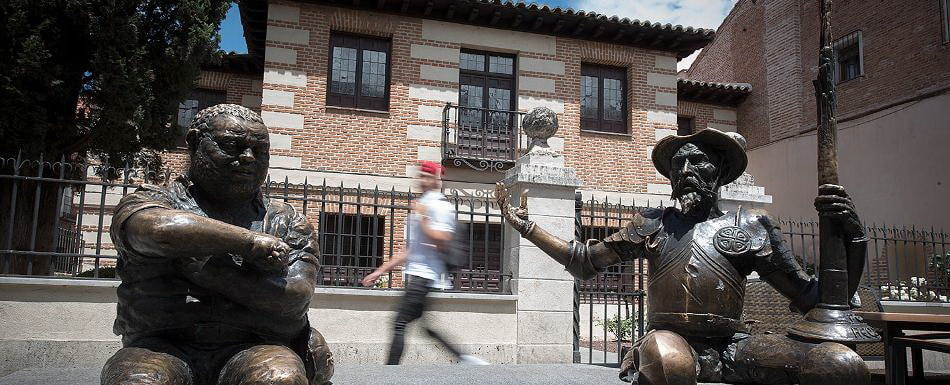

 RSS Feed
RSS Feed
















